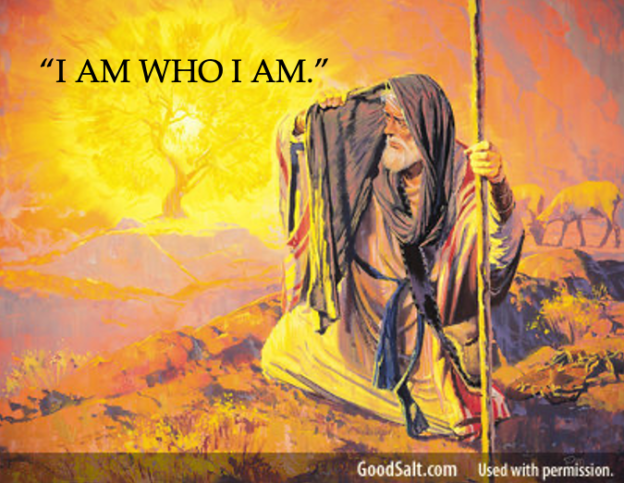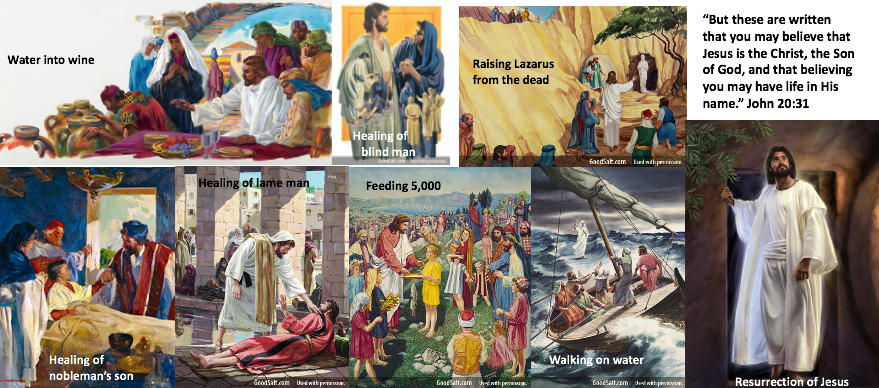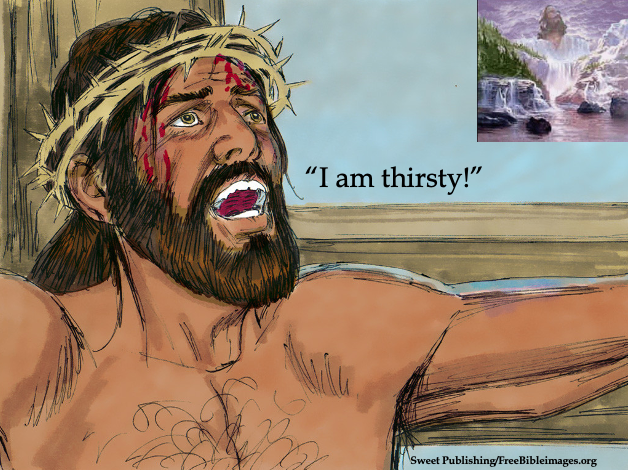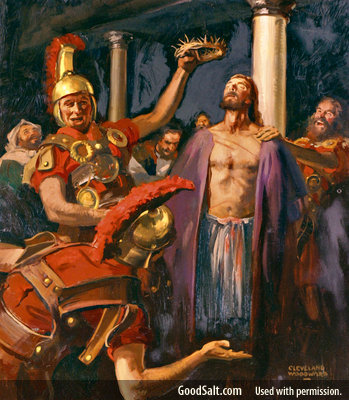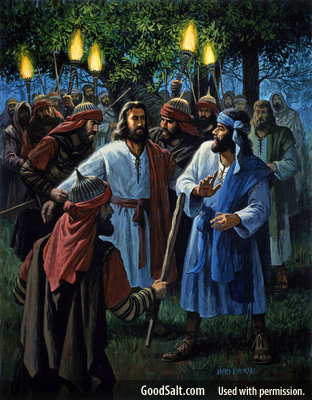“Behold, He is coming with clouds, and every eye will see Him, even they who pierced Him. And all the tribes of the earth will mourn because of Him. Even so, Amen.” Revelation 1:7
In the opening verses of the book of Revelation, the apostle John explains that the message of this book is from and about Jesus Christ, especially as it relates to end-time events (1:1-2). The promise of a special blessing is given to encourage readers to prepare for what is going to take place in the future (1:3).
John then addresses his readers. “4 John, to the seven churches which are in Asia: Grace to you and peace from Him who is and who was and who is to come, and from the seven Spirits who are before His throne, 5 and from Jesus Christ, the faithful witness, the firstborn from the dead, and the ruler over the kings of the earth.” (Revelation 1:4-5). John sent this letter (all of Revelation) “to the seven churches” which are addressed in chapters 2 and 3. The number “seven” signifies completion or fullness in the Bible which can be taken to mean this message is for the “whole” church throughout history, including all of us today. 1 These seven churches were in the Roman province of “Asia” Minor or western modern Turkey.
Notice that John extends “grace” before “peace” to his readers (1:4b). Why does he do this? Before undeserving sinners can experience “peace” with God, they must be saved by God’s “grace” or undeserved favor. “God doesn’t save us because of any good thing we have done, will do, or even promise to do. God saves us solely by His grace through faith (Ephesians 2:8-9). Salvation is God’s gift to undeserving sinners—we must never forget that! The result of this precious grace is a relationship that offers us true peace that overcomes any trials and tribulations the world can bring. What a reassuring greeting to the members of the persecuted church! Though John will later describe judgment and distress that will overtake wicked unbelievers in the future, God’s own people receive grace and peace.” 2
What about you, my friend? Have you found peace with God by grace through faith in Jesus Christ? The Bible says, “8 For by grace you have been saved through faith, and that not of yourselves; it is the gift of God, 9 not of works, lest anyone should boast.” (Ephesians 2:8-9). We are saved from hell “through faith.” Not through religion or regulations. Not through our good works or morality. It is through faith alone in Jesus Christ alone.
Too many churches are saying we are saved through faith plus… I believe this must break God’s heart. Because when we say it takes more than faith in Jesus to save us from hell, we are saying to God, “Your Son’s death was disappointing. Jesus paid for some of my sins, but I must pay for the rest of my sins.” In other words, we are telling God that Jesus did not get the job done, so we have to help Him. But listen: Jesus does not need our help to save us from our sins. He did not make a down payment for our sins when He died on the cross. He made the full payment for our sins. That is why He said, “It is finished!” (John 19:30). He finished paying the penalty for all our sins when He died in our place. He simply asks us to humbly accept His free gift by faith. And when we do, we are saved forever!
This wonderful salvation is “the gift of God.” Do you ever have to pay to receive a gift? No. Why? Because a gift is already paid for. Salvation is free to you and me because Jesus Christ already paid for it all when He died for our sins and rose from the dead. The hand that receives the gift of salvation is our faith in Jesus Christ. The moment we believe in Jesus for His gift of salvation, “we have peace with God” (Romans 5:1).
John tells us that “grace” and “peace” are from the Triune God. First, he refers to God the Father when he writes, “from Him who is and who was and who is to come” (1:4c; cf. Revelation 4:8; 11:17; 16:5). This brings to remembrance the “I AM” of Exodus 3:14-15. God the Father transcends all of time – past, present, and future. He was in control of our past. He is in control of our present. And He will be in control of our future no matter what we face. This is important to remember when we read through the series of judgments in the book of Revelation. God’s abiding presence in our lives enables us to experience His peace which surpasses human understanding (Philippians 4:7).
Next, we see that “grace” and “peace” are also from God the Holy Spirit. John writes, “and from the seven Spirits who are before His throne” (1:4d). Remember the number “seven” represents completion or fullness in the Bible. In Revelation 4:5, we read, “Seven lamps of fire were burning before the throne, which are the seven Spirits of God.” (cf. Zechariah 4:2-7; Isaiah 11:2-3). The Holy Spirit gives “perfect illumination and insight concerning all that transpires everywhere. By this perfect wisdom God rules the universe. The imagery of God’s throne is used throughout the rest of the book (the word throne is used forty-two times). The believers of the seven churches undoubtedly received great encouragement from this greeting as it emphasizes that God is at work in their lives with complete awareness as well as perfect insight.” 3
We may think that God is distant or doesn’t care about us when we face difficult times. God wants to remind us that He is fully aware of our needs and circumstances, and He is at work in our lives. In fact, the Bible tells us that when are in so much pain that we do not know how to pray, the Holy Spirit will intercede for us to God the Father (Romans 8:26-27). He fights for us before the throne of God.
John introduces God the Son last in this acknowledgment perhaps to emphasize His importance: “And from Jesus Christ, the faithful witness, the firstborn from the dead, and the ruler over the kings of the earth” (1:5a). The Lord Jesus is described as “the faithful witness.” Throughout His entire earthly ministry, Jesus was faithful to share the truth He had received from His Father in heaven (John 3:11, 32; 4:44; 7:7; 8:14-18; 18:37). 4 This would be especially true concerning the future events He would disclose in this letter. As “the firstborn from the dead,” Jesus was the first to rise from the dead and remain alive forever, making Him superior to all others. When John says that Jesus is “the ruler over the kings of the earth,” he is looking ahead to Christ’s future ministry after His Second Coming to earth (see Revelation 11:15; 19:15-20:6).
John is so overtaken with joy at the mention of the glorious and majestic Lord Jesus Christ, that he breaks forth into praise: “5 To Him who loved us and washed us from our sins in His own blood, 6 and He made us into a kingdom, priests to His God and Father—to Him be the glory and the dominion forever and ever. Amen.” (Revelation 1:5b-6 NKJV NASB). John gives glory to God the Son since this is the primary purpose of the book of Revelation. John ascribes “glory and… dominion” to Jesus who has always “loved us and washed us from our sins in His own blood.” In giving glory to Jesus, John first “draws our attention back to the cross where he had once stood as an eyewitness to the sufferings of his Savior (John 19:26-27, 35). By the shedding of His blood, Christ paid the debt in full for the sins of the world and thereby released believers from the guilt and penalty of their sins. On our behalf, He conquered death and gave new life to all who believe.” 5
No one loves us as much as Jesus. How do I know this? Because He “washed us from our sins in His own blood” the moment we believed in Him. Another evidence of His love for us is that “He made us into a kingdom, priests to His God and Father.” The moment you and I believe in Jesus for His gift of salvation, we are placed in His “kingdom” (corporately) as “priests” (individually) “to His God and Father.” This emphasis on God’s love at the beginning of this book would be a great source of comfort for his readers considering the following revelation of much judgment to come on humanity (Revelation 6-19). Everything God does is because He loves His people. 6
The first prophetic utterance in the book of Revelation is given in the next verse: “Behold, He is coming with clouds, and every eye will see Him, even they who pierced Him. And all the tribes of the earth will mourn because of Him. Even so, Amen.” (Revelation 1:7). In verses 5 and 6 John focused on how worthy Jesus is of eternal “glory” and “dominion.” But now he sees Christ coming back to earth to obtain this “glory” and “dominion.” This verse announces the climactic event in Revelation, namely, the return of Jesus Christ to the earth at His Second Coming (Revelation 19:11-16). All that takes place between this verse and Revelation 19:11-16 leads up to that event.
The word “Behold” (Idou) draws attention to what follows. 7 To put it in our own vernacular – “Stop whatever you are doing and pay attention to what I am about to say! You don’t want to miss this!”
This Jesus Who washed us from our sins in His own blood at His First Coming is coming back to earth again this time “with clouds.” Just as Jesus ascended physically and visibly to heaven with a cloud (Acts 1:9-11), so He will return from heaven to earth physically and visibly with clouds. As Christ gradually descends out of the sky to destroy His enemies at the end of the Tribulation (Revelation 19:11-21), “every eye will see Him, even they who pierced Him.” “All mankind will have the opportunity to witness the return of Christ to earth, including Jews, Who will mourn their crucifixion and prolonged rejection of the Messiah (Zechariah 12:10; John 19:37). The phrase ‘all the tribes of the earth (gēs)’ is a reference to every nation on the planet (the same Greek phrase is used in the LXX in Genesis 12:3; 28:14; Psalm 72:17; and Zechariah 14:17 in reference to the entire earth). John is elated that both Jews and Gentiles will believe in Christ and mourn over their mistreatment of Him. Thus, he proclaims, ‘Even so, Amen. (Emphasis added)’ ” 8
This Second Coming of Christ to earth (Revelation 1:7) is in in contrast to the future Rapture or sudden removal of the Church which will probably not be visible to everyone (I Corinthians 15:51-52; I Thessalonians 4:16-17; Revelation 4:1-4) because it will take place suddenly. Only those who are “in Christ” (believers in Jesus) will hear “the trumpet of God” sound (I Thessalonians 4:16) when the Rapture takes place.
Other contrasts in the Bible between the Rapture and the Second Coming of Christ to earth include the following:
a. The Rapture is imminent – it could happen at any moment (Matthew 24:36-51; I Corinthians 15:51-52; I Thessalonians 4:13-5:11), whereas the Second Coming is preceded by numerous signs (outpouring of Spirit, prophesy, dreams, visions, blood, fire, columns of smoke, warfare, darkening of sun and moon, unprecedented suffering, etc. (Matthew 24:4-35; Joel 2:28-32; Revelation 6-18).
b. The Rapture removes believers (Matthew 24:40-41; I Thessalonians 4:13-18) whereas in the Second Coming, Christ returns with believers to the earth (Jude 1:14; Revelation 19:8, 14).
c. The Rapture results in the removal of the church and the start of the Tribulation (I Thessalonians 4:13-5:11), whereas the Second Coming results in the return of the church to earth and the start of the 1000-year-rule of Christ on earth (Revelation 19:8, 11-20:6).
d. The Rapture brings a message of hope and comfort (I Thessalonians 4:13-18), whereas the Second Coming brings a message of judgment (2 Thessalonians 1:3-9; Revelation 19:11-21).
e. The Rapture of the church was previously unknown (“mystery,” I Corinthians 15:51-58) to the Old Testament writers, whereas the Second Coming is predicted in both Old and New Testaments (Joel 2:28-32; Zechariah 14; Matthew 24:4-30; Mark 13:24-26).
f. At the Rapture, the Lord takes believers from earth to heaven “to the Father’s house” (John 14:3); at the Second Coming, believers return from heaven to the earth (Matthew 24:30; Revelation 19:8, 11-21).
g. At the Rapture, Christians are judged at the Judgment Seat of Christ (I Corinthians 3:8-15; 4:1-5; 2 Corinthians 5:10; Revelation 4:4), but at the Second Coming, Gentile nations are judged (Matthew 25:31-46).
h. The Rapture is before the day of wrath (I Thessalonians 4:13-5:11), but the Second Coming concludes the day of wrath (Revelation 11:15-18; 19:11-20).
i. At the Rapture, Christ comes in the air (I Thessalonians 4:16-17), but at the Second Coming Christ comes to the earth (Zechariah 14:4).
j. At the Rapture, Christ claims His bride (John 14:2-3; I Thessalonians 4:13-18), at the Second Coming, Christ comes with His bride (Revelation 19:8, 14).
k. At the Rapture, Christ gathers His own (I Thessalonians 4:16-17), but at the Second Coming, angels gather the elect (Matthew 24:31).
l. At the Rapture, Christ comes to reward (I Thessalonians 4:17; Revelation 22:12), at the Second Coming, Christ comes to judge (Matthew 25:31-46).
m. At the Rapture, Christ comes as the Bright Morning Star (Revelation 22:16), but at the Second Coming, Christ comes as the Sun of Righteousness (Malachi 4:2).
Next Jesus confirms the preceding prophetic forecast of His return to earth (Revelation 1:7) with a solemn affirmation of His eternality and omnipotence: “I am the Alpha and the Omega, the Beginning and the End,” says the Lord, “who is and who was and who is to come, the Almighty.” (Revelation 1:8). “The Alpha and Omega” are the first and last letters of the Greek alphabet, and signify here, Jesus’ comprehensive control over all things—including time (cf. Revelation 21:6; 22:13). He is in control of the past (“who was”), the present (“who is”), and the future (“who is to come”). Christ is the Creator of all things (John 1:3; Colossians 1:16; Hebrews 1:2), and He will bring history to its conclusion. Christ is yesterday, today, and tomorrow because he exists eternally. 9
Jesus is “the Almighty.” The Greek word for “Almighty” is pantokratōr, “the all-powerful One.” It is used ten times in the New Testament, nine of them in Revelation (2 Corinthians 6:18; Revelation 1:8; 4:8; 11:17; 15:3; 16:7, 14; 19:6, 15; 21:22). 10 Because Jesus is the all-powerful God, He has the ability to bring to pass the promise of His Second Coming to earth. 11
In conclusion, the fulfillment of Jesus’ visible and bodily return to earth to defeat His enemies (Revelation 19:11-21), is based upon the Triune God’s power to fulfill His promises and plans (Revelation 1:4-8). Since God has the power to bring His prophetic predictions to pass, He also has the power to fulfill His individual plans for each of us. His power cannot only save us from an eternity separated from Him, but it can also give us peace which surpasses human understanding during times of distress. Therefore, we can trust Him to take care of us.
Prayer: Father God, thank You so much for giving us Your grace which saves underserved sinners from hell forever the moment we put our faith in Christ alone. This same grace can also give us peace as we face tribulation and distress in our modern world. Thank You, Lord Jesus, for washing us clean of all our sins with Your shed blood the moment we believed in You. No one loves us like You do, Lord. Because You are in control of our past, present, and future, we can trust You to take care of us during these uncertain times. Nothing is too hard for You, Lord God Almighty. In the mighty name of Jesus Christ, we pray. Amen.
ENDNOTES:
1. Tony Evans, CSB Bibles by Holman. The Tony Evans Bible Commentary (B & H Publishing Group, Kindle Edition, 2019), g. 2368.
2. Charles R. Swindoll, Insights on Revelation, (Swindoll’s Living Insights New Testament Commentary Book 15, Tyndale House Publishers, Inc., 2014 Kindle Edition), pg. 35.
3. Bob Vacendak; Robert Wilkin; J. Bond; Gary Derickson; Brad Doskocil; Zane Hodges; Dwight Hunt; Shawn Leach. The Grace New Testament Commentary: Revised Edition (Grace Evangelical Society, Kindle Edition, 2019), pg. 1496-1497.
4. Ibid., pg. 1497.
5. Swindoll, pg. 36.
6. Tom Constable, Notes on Revelation, 2017 Edition, pg. 16.
7. Walter Bauer, A Greek-English Lexicon of the New Testament and Other Early Christian Literature: Third Edition (BDAG) revised and edited by Frederick William Danker (Chicago: University of Chicago Press, 2000 Kindle Edition), pg. 468.
8. Vacendak, pp. 1497-1498.
9. Evans, pg. 2369.
10. John F. Walvoord, The Bible Knowledge Commentary Epistles and Prophecy, Editors John F. Walvoord and Roy B. Zuck, (David C Cook, 2018 Kindle Edition), pg. 164.
11. Vacendak, pg. 1498.


